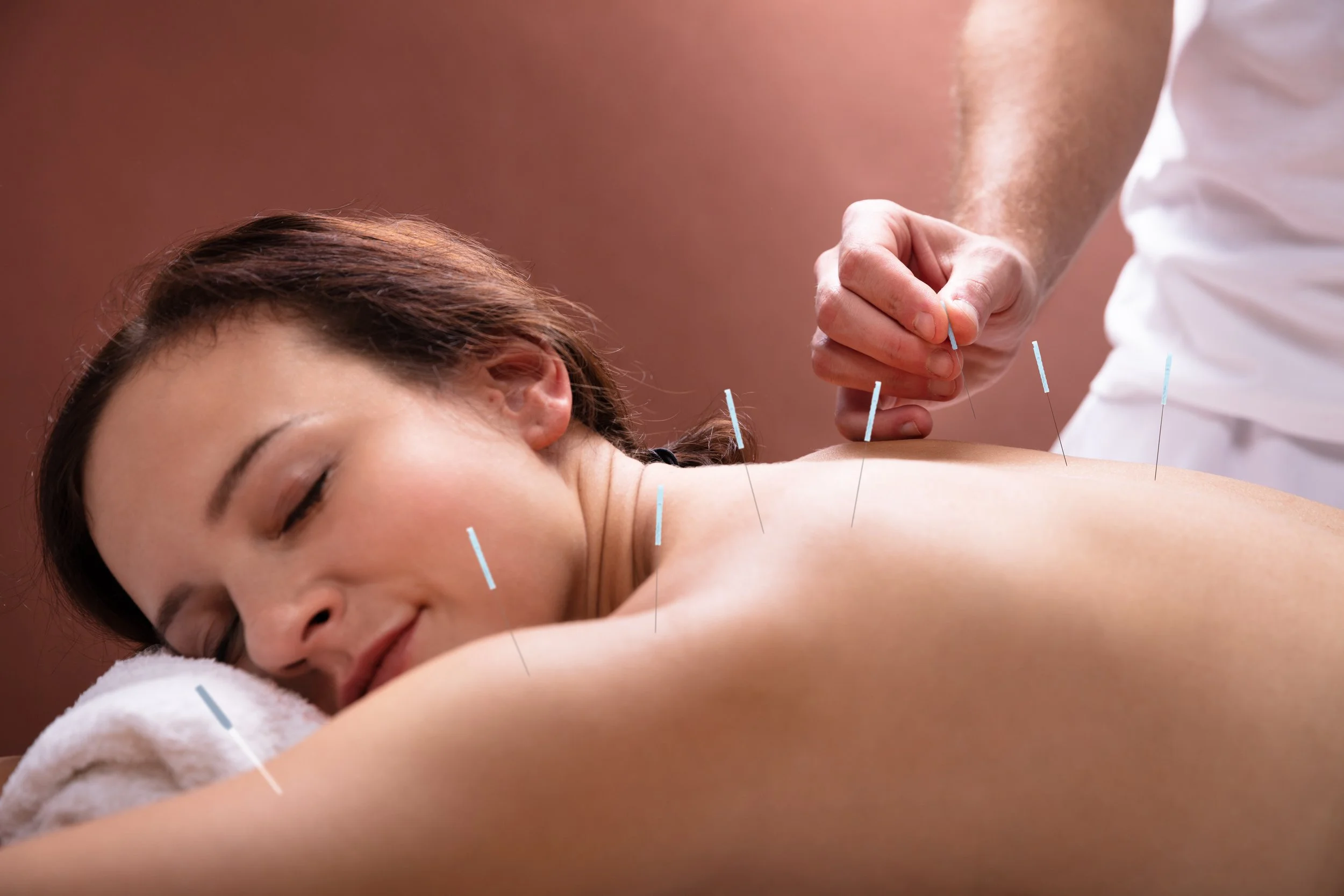Is acupuncture painful?
Is Acupuncture Painful?
Needles! Don’t all needles hurt? In general, acupuncture not considered a painful experience for most individuals. The perception of pain during acupuncture can vary greatly among individuals, but most people can’t feel acupuncture needles going into the skin if done correctly. Each practitioner and technique is different, as well as the styles of acupuncture. Some patients not feel any pain at all, while others may experience mild discomfort, or a sensation often described as dull, heavy, achy, tingling, or warm around the insertion site of the needles. Sensations are good— it means the point is stimulating something within the body. Sharp uncomfortable pain is not what we are looking for.
The needles used in acupuncture are extremely thin, much thinner than those used for injections or blood draws. Many people find that the sensation of the needle insertion is minimal or barely noticeable. However, there may be certain points or areas of the body where sensitivity is higher, leading to a slightly more intense sensation.
Some factors that may contribute to a patient feeling discomfort may be from:
Sensitivity: People have different pain thresholds and anxiety or fear of needles can also influence pain perception.
Technique: The technique used by the acupuncturist can affect the sensation experienced during acupuncture. For example, some practitioners may use a quick, shallow insertion technique, while others may prefer a slower, deeper insertion. The angle and depth of needle insertion can also influence the sensation felt by the patient.
Location of Acupuncture Points: Some acupuncture points may be more sensitive or located in areas where there is more muscle tension or underlying pathology. Needle insertion in these areas may result in a stronger sensation or discomfort compared to other points on the body.
Qi Sensation: In traditional Chinese medicine, acupuncturists aim to achieve a sensation known as "de qi" or "qi sensation" when inserting needles. This sensation can vary from a dull ache to tingling or warmth around the needle. Some patients may interpret this sensation as discomfort or pain, while others may find it pleasant or therapeutic.
The goal of the needles is not to inflict pain. During your treatment, our goal is for you to relax and feel relief. It’s important to let your acupuncturist know comfort levels during treatment or if anything hurts. They can adjust the depth of needle insertion to minimize discomfort while still effectively targeting the acupuncture points.
How Acupuncture Can Improve Chronic Pain
How Acupuncture Can Improve Chronic Pain
Living with chronic pain can be a daily struggle, affecting not only physical well-being but also mental and emotional health. While there are various approaches to managing persistent pain, acupuncture has gained recognition for its potential to provide relief. In this blog post, we'll explore how acupuncture, an ancient practice rooted in Traditional Chinese Medicine, can be a holistic and effective option for those seeking relief from chronic pain.
Acupuncture involves the insertion of thin, sterile needles into specific points on the body known as acupuncture points. According to Traditional Chinese Medicine, the human body has a network of energy pathways, or meridians, through which vital energy, or Qi (pronounced Chee), flows. When there is an imbalance or blockage in the flow of Qi, it is believed to lead to pain and various health issues. Acupuncture aims to restore the balance and promote the body's natural healing processes.
How Acupuncture Works for Chronic Pain:
Pain Modulation: Acupuncture is thought to stimulate the nervous system, triggering the release of endorphins and other neurotransmitters. Endorphins act as natural painkillers, helping to reduce the perception of pain.
Inflammation Reduction: Chronic pain is often associated with inflammation. Acupuncture may have anti-inflammatory effects, helping to alleviate pain related to conditions such as arthritis or inflammatory disorders.
Muscle Relaxation: The insertion of needles into specific points can promote muscle relaxation and reduce tension. This is particularly beneficial for individuals experiencing chronic pain related to muscle tightness or spasms.
Improved Blood Flow: Acupuncture is believed to enhance blood circulation, promoting the delivery of oxygen and nutrients to tissues. Improved blood flow can contribute to the healing of damaged or irritated structures, reducing pain.
Regulating the Nervous System: Acupuncture may influence the autonomic nervous system, helping to regulate functions such as heart rate, digestion, and respiratory rate. This regulation can have positive effects on pain perception and overall well-being.
Conditions that Acupuncture May Benefit:
Osteoarthritis and Rheumatoid Arthritis: Acupuncture has shown promise in providing relief for individuals with arthritis, improving joint function and reducing pain.
Back Pain: Chronic back pain, whether due to disc issues, muscle strain, or other factors, may respond positively to acupuncture treatments.
Migraines and Headaches: Acupuncture is often considered for managing chronic headaches and migraines, offering a non-pharmaceutical approach to pain relief.
Fibromyalgia: Individuals with fibromyalgia, characterized by widespread musculoskeletal pain, may find acupuncture beneficial in managing their symptoms.
While individual responses to acupuncture can vary, many people with chronic pain have reported significant improvements in their symptoms and overall quality of life. As with any medical intervention, it's essential to consult with a qualified and licensed acupuncture practitioner to create a tailored treatment plan based on your specific condition. Acupuncture offers a holistic approach to chronic pain management, addressing both the physical and energetic aspects of well-being. Consider exploring this ancient practice as a potential avenue for unlocking the relief you deserve.



